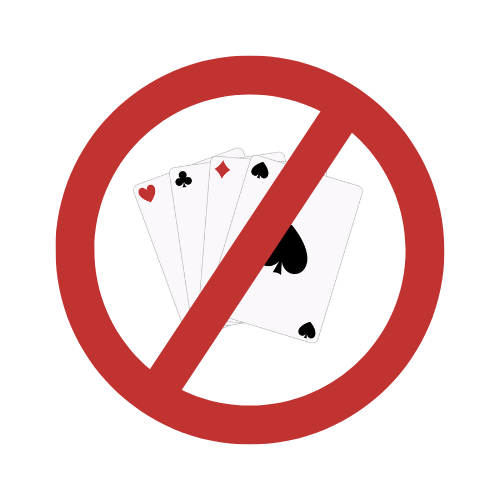Understanding Drug Addiction
What is drug addiction?
Drug addiction, also known as substance use disorder (SUD), is a complex condition characterised by the compulsive use of drugs despite harmful consequences. It affects millions of people globally, including a significant number in the UK. This page explores the nature of drug addiction, its causes, impacts, treatment options, and includes a personal account from someone undergoing treatment.
The Nature of Drug Addiction
Drug addiction is a chronic disease that changes the brain’s chemistry and function, particularly in areas related to reward, motivation, and memory. This leads to an overwhelming desire to use drugs, loss of control over drug use, and continued use despite adverse effects. The cycle of addiction involves:
- Initial Use: Experimentation or recreational use, often influenced by social or environmental factors.
- Regular Use: Increased frequency and quantity of drug use.
- Risky Use: Continued use despite potential dangers or negative outcomes.
- Dependence: Physical or psychological reliance on the drug.
- Addiction: Compulsive drug-seeking behaviour and use.
Causes and Risk Factors
The development of drug addiction is influenced by various genetic, environmental, and psychological factors. Key risk factors include:
- Genetics: Family history of addiction increases vulnerability.
- Mental Health Issues: Conditions like depression, anxiety, and PTSD are closely linked to substance abuse.
- Environmental Influences: Peer pressure, availability of drugs, and socio-economic status can contribute to addiction.
- Trauma and Stress: Adverse childhood experiences and chronic stress can lead to drug use as a coping mechanism.
“Sometimes we motivate ourselves by thinking of what we want to become. Sometimes we motivate ourselves by thinking about who we don’t ever want to be again.”
– Shane Neimeyer
The Impact of Drug Addiction
Drug addiction has profound effects on individuals, families, and society at large.
Physical Health
Chronic drug use can cause a wide range of health issues, including cardiovascular diseases, respiratory problems, liver damage, neurological impairments, and an increased risk of infectious diseases like HIV and hepatitis due to needle sharing.
Mental Health
Addiction often co-occurs with mental health disorders, exacerbating symptoms of depression, anxiety, psychosis, and other conditions. It can also lead to cognitive impairments and memory loss.
Social and Economic Consequences
The societal impact includes increased crime rates, strained relationships, job loss, homelessness, and significant healthcare costs. In the UK, the economic burden of drug addiction, including healthcare, criminal justice, and lost productivity, is substantial.
Treatment and Recovery
Overcoming drug addiction requires a comprehensive approach that addresses both the physical and psychological aspects of the disorder. Effective treatment options include:
Detoxification
Detoxification, or detox, is the initial step in treating drug addiction, involving the safe management of withdrawal symptoms under medical supervision. This process helps cleanse the body of drugs and prepares individuals for further treatment.
Therapy and Counselling
Therapeutic interventions are crucial for addressing the underlying causes of addiction and developing coping strategies. Key therapies include:
- Cognitive Behavioural Therapy (CBT): Helps individuals recognise and change harmful thought patterns and behaviours.
- Motivational Interviewing (MI): Enhances motivation to change and commit to treatment.
- Dialectical Behaviour Therapy (DBT): Combines CBT with mindfulness techniques to manage emotions and reduce self-destructive behaviours.
Medication-Assisted Treatment (MAT)
MAT involves the use of medications to manage withdrawal symptoms, reduce cravings, and prevent relapse. Common medications include methadone, buprenorphine, and naltrexone for opioid addiction, and disulfiram and acamprosate for alcohol addiction.
Support Groups
Support groups provide a sense of community and peer support. In the UK, organisations like Narcotics Anonymous (NA) offer meetings and resources for those in recovery. More information can be found on the Narcotics Anonymous UK website.

John’s Story
My Personal Journey to Recovery
John, a 35-year-old from Birmingham, shares his experience with drug addiction and his path to recovery:
“I started using recreational drugs in my early twenties, thinking it was just a phase. But over the years, my drug use escalated, and I found myself dependent on substances to get through the day. I lost my job, my relationships fell apart, and I was spiralling out of control.
It wasn’t until I hit rock bottom and ended up in hospital after an overdose that I realised I needed help. With the support of my family, I entered a rehabilitation programme. Detox was brutal, but the real challenge was confronting the reasons behind my addiction.
Through CBT and regular NA meetings, I learned to manage my triggers and develop healthier coping mechanisms. It’s been two years since I’ve been clean, and while it’s a constant battle, the support network I’ve built keeps me on track. Recovery has given me a second chance at life, and I’m determined to make the most of it.”
Resources and Support in the UK
For those struggling with drug addiction, numerous resources are available in the UK:
- NHS Drug Addiction Services: Offers a range of services, including assessment, treatment, and support (NHS Drug Addiction Services).
- FRANK: Provides information and advice on drugs, including a helpline for confidential support (Talk to FRANK).
- Narcotics Anonymous UK: Offers meetings and resources for individuals in recovery (Narcotics Anonymous UK).
- Addaction: A charity providing support and treatment for those affected by drug and alcohol addiction (Addaction).
Conclusion
Drug addiction is a complex and challenging condition that affects individuals and society in profound ways. Understanding the nature of addiction, its causes, and the available treatment options is crucial for addressing this issue. With the right support and resources, recovery is possible, and individuals can regain control of their lives. If you or someone you know is struggling with drug addiction, don’t hesitate to seek help and start the journey towards recovery.
